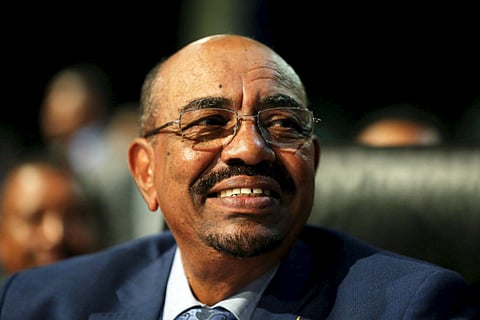Why does the ICC solely target Africans?
Unless every single country on the planet is considered within its jurisdiction and is treated strictly according to the law, the ICC should he dissolved

Whatever the crimes allegedly committed by the Sudanese President Omar Al Bashir, the International Criminal Court (ICC) in The Hague is unfit to try him or anyone else on its wanted list for that matter based on its dismal record of pursuing the weak and ignoring the strong.
The South African government was right to smooth his exit. He was invited by the African Union to attend its recent summit held in Johannesburg, was promised immunity from arrest by the host nation — and under international law a head of state or high government official, while travelling on state business cannot be detained. The ICC believes its demands trump international law, a conflict of interests that has never been tested in any court.
The premise of an international court enshrined in the 1998 Rome Statute that affirms that “the most serious crimes of concern to the international community as a whole must not go unpunished” is honourable. At last, perpetrators of war crimes, crimes against humanity and genocide would no longer enjoy immunity – or so it was believed when the ICC was established in 2002.
Sadly, it has failed to live up to its promise. It’s no mere accident of fate that until now the court has been solely focused on investigating Africans, including two African heads of state.
All 32 individuals indicted by the court have been Africans. Indeed, one could be forgiven for believing that Africa has the monopoly on war crimes, which, of course, is patently untrue. The majority of African countries signed up to the Rome Statute in good faith. And they have been unfairly penalised for doing so.
The African Union has had enough. Its current chairman announced: “This is not the headquarters of the ICC. We don’t want it in Africa.” On the other hand, South Africa’s ruling ANC Party accused the ICC of bias against Africans, adding “it was no longer useful for the purposes for which it was intended”. That came as a bombshell given that South Africa has incorporated the ICC’s tenets into its own constitution.
The President of Mali, Ebrahim Abu Bakr Keita, said it was “up to Africans, not Europeans or Americans, to judge their leaders”, against the background of discussions on whether or not African states should withdraw from membership of the ICC in order to establish an African version. That would, indeed, be more equitable and, if successful, could serve as a precedent for other continents. It could, but it won’t because big powers will reject vulnerability to prosecution as, indeed, they already have.
The unwillingness of major world powers to be held to account is one of the reasons why the ICC is structurally unsound. The US, Russia, China, India and Israel have not ratified the Rome Statute, which equates to billions of the world’s population being outside the court’s jurisdiction, unless they are referred by the UN Security Council (UNSC). But that’s not going to happen as long as the UNSC’s five permanent members wield a power of veto, which they use not only to serve their own interests, but those of their allies.
The hypocrisy of the US State Department, whose spokesman expressed his country’s “disappointment” that South Africa neglected to arrest Al Bashir, is glaring. This from a country that has leaned heavily on its allies and small states to sign “Article 98” (non-surrender) agreements designed to shield US citizens from the ICC. Worse, many of those bilateral agreements are one-way in America’s favour; non-reciprocal agreements relating only to the non-surrender to the ICC of American nationals.
It so happens, too, that the ICC is hamstrung to investigate the Syrian regime for its part in the deaths of more than 210,000 of its own citizens. Syria is not a member of the court and it cannot be referred via the UNSC because Russia would use its veto. So again, states that didn’t ratify the Rome Statute and have influential veto-holding friends get a free out-of-jail pass.
Case against Israel
Much brouhaha has been made out of the ICC’s recognition of Palestine as a member, which permits the Palestinian National Authority to file a case against Israel related to its war on Gaza last year resulting in the deaths of more than 2,000 Palestinians. The court’s chief prosecutor has said the ICC is considering the possibility of investigating Israel, Hamas and other Palestinian militant groups for war crimes, requiring an in-depth criminal investigation.
That is mere feel-good pie in the sky. Firstly, the Israeli government would bar ICC investigators and, secondly, in the extremely unlikely event that Israeli political/military decision makers were called to The Hague, Israel would refuse to hand them over in the same way that Lebanon — or more precisely Hezbollah — won’t give up four suspects charged by the UN-sponsored Special Tribunal for Lebanon for their alleged involvement in the assassination of former Lebanese prime minister Rafik Hariri.
Rather no international court at all than one that’s toothless and inequitable.Unless every single country on the planet is considered within its jurisdiction and is treated strictly according to the law, rather than rendered immune on the basis of might is right, the ICC should be dissolved before it becomes a global laughing stock.
Linda S. Heard is a specialist writer on Middle East affairs. She can be contacted at lheard@gulfnews.com


